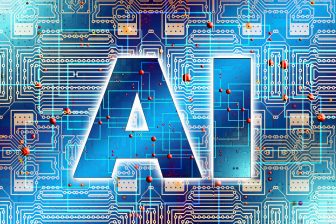 Artificial Intelligence (AI) has already become an integral part of all of our lives, revolutionising industries from healthcare to finance.
Artificial Intelligence (AI) has already become an integral part of all of our lives, revolutionising industries from healthcare to finance.
Its role within the property sector is in its infancy but it will, undoubtedly, play a huge part in everything from reading, correcting and creating complex legal documents to providing the interface between industry professionals and customers and clients.
However, unlocking AI’s full potential will require more than just technical expertise – it will demand a growth mindset.
So what is a growth mindset?
A growth mindset is the belief that a person’s capacities and talents can be improved over time.
A growth mindset, as conceived by Stanford psychologist Carol Dweck and colleagues, emphasises the idea that skills and knowledge can be developed through hard work and dedication.
Unlike a fixed mindset, which assumes that abilities are unchangeable, individuals with a growth mindset embrace effort and view challenges as opportunities for learning and growth.
Fostering this mindset is crucial for effective AI development and we must ensure we look to question and critique the outputs that are part of this process.
Nurturing AI Like a Child
When raising a child, a parent or guardian doesn’t wait until they’ve mastered every skill before allowing them to explore the world.
Similarly, AI benefits from early deployment. Instead of hoarding data behind closed doors, organisations should put AI to work in real-world scenarios. This approach generates valuable feedback and enriches the algorithm with new data. Just as a child learns to ride a bike by getting on it, experiencing falling off and going again, AI learns by actually doing.
For example, ChatGPT, OpenAI’s chatbot, was released to the public while still in its infancy. Millions of users provided data, leading to the improved version, GPT-4.
Embracing Continuous Learning
A growth mindset acknowledges that learning never stops. AI systems, like curious learners, thrive on experimentation. They learn from both successes and failures.
When IBM’s diagnostic AI system, Watson Health, outperformed doctors in laboratory experiments but failed in the field, it wasn’t due to a lack of technical expertise.
Watson Health had been developed with a traditional IT mindset, not one suited for AI. It was subsequently sold off for “parts”
The mighty Google recently created images through its Gemini AI that, having had so much racial and gender diversity input into its algorithm, resulted in images of Black and Asian German **** soldiers from the 1940’s together with other similar, and inaccurate, historic imagery where the desire for diversity, and to avoid stereotyping, had outweighed historical accuracy.
Unlike conventional software, AI continually evolves and transcends its intended capabilities if nurtured properly. Organisations must shift their mindset to embrace this ongoing learning process.
The Japanese have, since long before AI, embraced kaizen – continuous learning and improvement. In 1986 Masaaki Imai was credited with its creation and it was successfully used to develop the Toyota Way.
Thinking Digitally
To adapt to the AI revolution, organisations need a digital mindset. This means viewing data, algorithms, and AI as opportunities rather than threats. A growth mindset encourages leaders to explore new avenues, experiment with AI applications, and stay informed about advancements.
Just as children absorb knowledge from their surroundings, AI thrives when exposed to diverse data sources. By thinking digitally and also questioning outputs, organisations will maximise AI benefits and drive innovation.
The journey towards developing effective and safe AI with a growth mindset requires a commitment to continuous improvement, a readiness to confront challenges, and a dedication to the responsible advancement of technology.
If we nurture AI like children, we will unlock its potential to transform our world – one algorithm at a time.
Michael Day is head of Integra Property Services


Throughout my 35 year career in ‘IT’, I provided solutions to complex business issues, but never focused on the technology. I knew I had it at my disposal, and knew enough to know how to apply it, but we had engineers, architects, and developers who could do that stuff far better. When applying AI to a problem, no one ever bought it because it was sexy technology, they bought it because I demonstrated how everyday, volume, repetitive, monotonous, often complex regulatory tasks could be carried out quicker, more accurately, at lower cost, and with fewer people [civil service!]
Our esteemed PM would have us believe all those staff could then be used to focus on the exceptions, which need manual interventions, and that was the message I was giving 5 years ago. But the reality is most of those staff displaced by ‘digital workers’ are incapable of handling the really complex exceptions, and you don’t really need them in any case.
This should mean large scale reductions in those white collar workforces, but I wish whichever government tries it luck with the unions! Where i believe it will have a huge impact [for the better] is in sectors such as healthcare, accounting, finance, legal…
We’ve gone from agricultural, through the industrial revolution, and into services [white collar]. AI is ushering in the new digital revolution… but we’ll still need plumbers, builders, and sparks.
You must be logged in to like or dislike this comments.
Click to login
Don't have an account? Click here to register